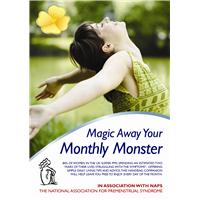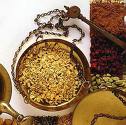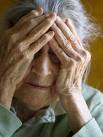London: An analysis of 26 skeletons selected from the Museum of Londons collection of 17,000; textile designs based on patterns found in x-ray crystallography, not seen since the 1951 Festival of Britain; a newly commissioned film by Marion Coutts and an exhibition about the thoughts and wishes of the dying – are some of the forthcoming special exhibitions at Wellcome Collection during 2008. [full listings below].
2008 will end with a major exhibition exploring the complex relationship between War & Medicine and the ways in which mankind’s desire to repair and heal has tried to keep pace with its capacity to wound and kill. The exhibition will look back as far as the Crimean War and will be brought up to date by specially commissioned artwork addressing the problems of military medicine in the conflict in Afghanistan. This will be the second part of a two-phase collaboration with the Deutsches Hygiene-Museum in Dresden, the first of which, Sleeping & Dreaming, opened on 28 November and closes on 9 March 2008.
Wellcome Collection www.wellcomecollection.orgthe new £30m public venue from the Wellcome Trust opened in June 2007. The buildings three galleries combine medicine, life and art to provide insight into the human condition. Exhibitions, both temporary and permanent, are supported through a public events programme that brings together experts from the arts, science and humanities to further explore human wellbeing. Wellcome Collection has been visited by over 100,000 people during its first five months of opening.
WELLCOME COLLECTION SPECIAL EXHIBITIONS 2008:
Full information on each temporary exhibition will be posted at www.wellcomecollection.orgthroughout 2008. Entry to all exhibitions is free.
Sleeping & Dreaming (28 November 2007 10 March 2008)
Sleeping & Dreaming, the second major temporary exhibition at Wellcome Collection, explores sleep the mysterious state we inhabit for a third of our lives. 250 objects across five major themes enable visitors to explore the biomedical and neurological processes that take place in the sleeping body and the social and cultural areas of our lives to which sleep and dreams are linked. The exhibition is the first of a two-part collaboration with the Deutsches Hygiene-Museum in Dresden. Exhibits range from artworks by Goya, Catherine Yass, Jane Gifford and Laura Ford, to an interview with a victim of sleep-deprivation interrogation; from a vehicle designed to provide homeless people with a mobile place to sleep to an extraordinary range of alarm clocks and a collection of traditional lullabies from around the world. Sleeping & Dreaming public events are detailed below.
Life Before Death (8 April – 18 May 2008)
The German photographer Walther Schels and journalist Beate Lakotta spent a year talking with terminally ill patients in hospices across Germany. They photographed 24 consenting patients shortly before and just after they died. The resultant portraits are shown side-by-side, accompanied by a short text which describes the patient’s experience of the situation in which they find themselves having to come to terms with the imminent end to their lives.
Atoms to Patterns (24 April – 10 August 2008)
This exhibition brings to light an extraordinary collection of vibrant textile designs from the early 1950s, most of which have been lying unseen in the collections of the Victoria and Albert Museum and the Science Museum for over 50 years. For the 1951 Festival of Britain a group of designers collaborated with some of the most distinguished scientists of the period to devise a range of fabrics and furnishings based on patterns revealed by x-ray crystallography – a means of visualizing the crystal structure of both organic and inorganic materials.
Marion Coutts (30 May – 29 June 2008)
The artist Marion Coutts will present a new film, commissioned by Wellcome Collection, which will use objects from the collections of Henry Wellcome and
from the Science Museum playfully to explore the workings of memory.
Skeletons (22 July – 28 September 2008)
The Museum of London has approximately 17,000 skeletons in its care, all removed for their preservation, from building sites under different parts of London. This exhibition will present 26 of these skeletons along with all the information about their health and likely social circumstances that can be gleaned from the location in which they were found and from a detailed analysis of their bones. The skeletons featured include some dating back to Roman times and many which reveal a great deal about the health and social conditions of the period in which they lived..
War & Medicine (November 2008 – March 2009)
The third major special exhibition at Wellcome Collection and, following Sleeping & Dreaming, the second of two exhibitions devised in collaboration with the Deutsches Hygiene-Museum, Dresden. War & Medicine will assess the impact and influence that warfare and medicine have had on one another. It looks at the way mankind’s desire to repair and heal has tried to keep pace with its capacity to maim and kill, meeting sometimes with success and sometimes with failure. As with Sleeping & Dreaming, this exhibition will include the perspectives of artists, writers and filmmakers as well as those of medical scientists and social historians.
WELLCOME COLLECTION PERMANENT GALLERIES
Two of Wellcome Collections three galleries are permanent. These are:
Medicine Man (350 m2): This exhibition contains more than 500 strange and beautiful artefacts from Sir Henry Wellcome’s original collection, presented in a rich American walnut-panelled gallery, centred on a large ‘Wunderkammer’ cabinet.
Medicine Now (350 m2): The Medicine Now exhibition explores contemporary medical topics through the eyes of scientists, artists and popular culture in a bright contemporary environment.
SLEEPING & DREAMING PUBLIC EVENTS
All temporary exhibitions are supported by a series of public events that enable people to discover more about the subjects they cover. Below are the remaining public events for Sleeping & Dreaming that bring together experts from science, the arts and humanities to explore this twilight world. Events are free unless otherwise stated. All tickets must be booked in advance from < a href="http://www.wellcomecollection.org">www.wellcomecollection.org
Late-night Film Festival
Friday 25 January 2008, 19.0023.00
Explore Wellcome Collection by night and see rare footage from the Wellcome Library collection screened alongside classic feature films and quirky shorts exploring sleeping and dreaming. Galleries, café and bookshop will be open throughout. A full screening programme will be available in December at www.wellcomecollection.org
Catherine Yass: Artist in Conversation and premiere of new film work
Thursday 7 February 2008, 19.0020.30
The first opportunity of seeing a new work by leading British artist Catherine Yass that documents her waking moments and dream recall. Catherine will be joined in conversation by Lux Gallery Curator, Lucy Reynolds, and will discuss her interests in sleeping and dreaming.
Speaker: Catherine Yass, artist featured in exhibition
Facilitator: Lucy Reynolds, Curator, Lux
Sleep Talk
A unique symposium exploring insomnia and sleeplessness
Friday 22 February 2008, 19.0021.00
Saturday 23 February 2008, 10.3017.00
Tickets: £30 / £20 concessions
This symposium will explore insomnia and sleeplessness through science, psychology, history, sociology and art. The event will begin with a special performance of Bachs Goldberg Variations by innovative classical music group, Manning Cammerata. When Johann Sebastian Bach first composed this music, it was used as a curative for Count von Kaiserlings insomnia.
Speakers Include
Ann Coxon, Assistant Curator, Tate Modern,
Kenton Kroker, Science and Technology Studies, York University, Toronto
Eluned Sumners Bremner, Department of Womens Studies, University of Auckland
Kevin Morgan, Director of Clinical Sleep Research Unit, Loughborough University
Chris Idzikowski, Director, Edinburgh Sleep Centre
Russell Foster, Professor of Circadian Neuroscience, University of Oxford
An End To Feeling Shattered? If you could live without sleep, would you?
Friday 28 February 2008, 19.0020.30
Drugs that enable you to stay awake 24 hours a day have been produced but would you want them? Should they be made available? What would be the impact on your body, your relationships and your life? Join a panel of outspoken speakers to debate whether drugs are the answer to 21st-centruy life.
Speakers
Simon Williams, Lecturer in Sociology, University of Warwick
Danielle Turner, Neuroscience coordinator, University of Cambridge
John Harris, Professor of Bioethics, University of Manchester
Facilitator
Toby Murcott, Science writer and presenter
What is the Wellcome Collection?
Wellcome Collection is a new £30 million visitor attraction from the Wellcome Trust that opened on 21 June 2007. Wellcome Collection is a world first. It combines three contemporary galleries together with the world-famous Wellcome Library, public events forum, café, bookshop, conference centre and members’ club, to provide visitors with radical insight into the human condition.
Wellcome Collection builds on the vision, legacy and personal collection of Wellcome Trust founder Sir Henry Wellcome and is part of the Wellcome Trust’s mission to foster understanding and promote research to improve human and animal health. The building is centred around three substantial galleries totalling 1350m2 and the world famous Wellcome Library.
About the Wellcome Trust: www.wellcometrust.ac.uk
The Wellcome Trust is the largest charity in the UK and the second largest medical research charity in the world. It funds innovative biomedical research, in the UK and internationally, spending around £500 million each year to support the brightest scientists with the best ideas. The Wellcome Trust supports public debate about biomedical research and its impact on health and wellbeing. Wellcome Trust funding has supported a number of major successes, including:
*sequencing the human genome
*establishing the UK Biobank
*development of the antimalarial drug artemisinin
*pioneering cognitive behavioural therapies for psychological disorders
*building the Wellcome Wing at the Science Museum
* the Wellcome Trust Case Control Consortium, the largest ever genetic study of common diseases such as diabetes, coronary heart disease and bipolar disorder
The Wellcome Trust is a charity registered in England, no. 210183



